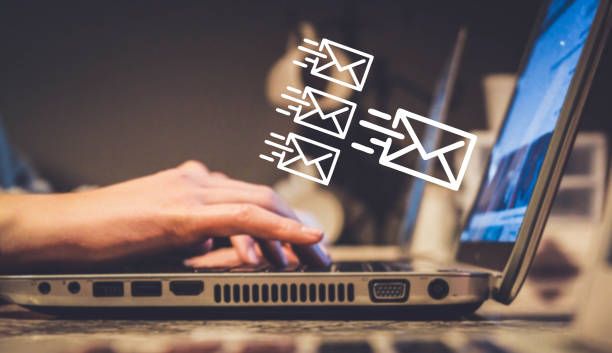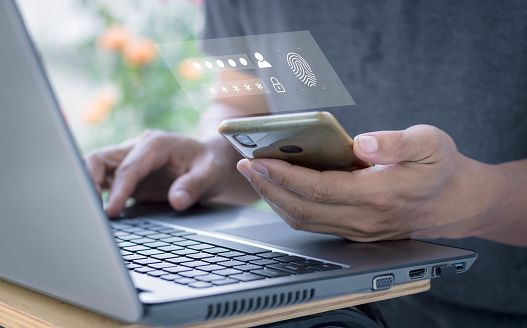In today's digital world, scammers are constantly finding new ways to deceive individuals and gain access to their personal and financial information. Email scams, in particular, have become increasingly prevalent. To protect yourself from these fraudulent activities, it is crucial to utilize an email checker for scams. In this comprehensive guide, we will explore the tactics used by scammers, introduce effective email checker tools, and provide valuable insights on how to identify and avoid email scams to safeguard your finances and personal information.
Understanding Email Scams and Their Impact:
Email scams, also known as phishing or scam emails, are designed to deceive individuals into providing sensitive information or making fraudulent payments. We'll explain the different types of email scams, including fake check scams, phishing attempts, and imposter scams, and discuss the potential consequences of falling victim to these schemes.
Tactics Used by Scammers

Scammers employ various tactics to make their fraudulent emails appear legitimate and trustworthy. We'll delve into these tactics, including:
- Spoofing: Scammers use email spoofing techniques to make their emails appear as if they are coming from a legitimate source, such as a reputable company or financial institution.
- Urgency and fear tactics: Scammers often create a sense of urgency or fear in their emails, pressuring recipients to take immediate action without thoroughly evaluating the email's legitimacy.
- Social engineering: Scammers manipulate individuals by exploiting their emotions, trust, or curiosity. They may impersonate a friend, family member, or authority figure to deceive recipients.
- Malicious attachments and links: Scammers may include malicious attachments or embedded links in their emails, leading to malware infections or phishing websites designed to steal personal information.

Importance of an Email Checker for Scams:

An email checker for scams is a powerful tool that can help identify fraudulent emails and protect you from falling victim to scams. We'll explore the benefits of using an email checker, including:
- Email validation: An email checker verifies the authenticity of email addresses, ensuring they belong to legitimate domains and are not associated with known scam activities.
- Domain reputation analysis: By analyzing the reputation of the email sender's domain, an email checker can determine whether the email is likely to be from a trusted source or a potential scammer.
- Content analysis: Email checkers examine the content of emails for suspicious patterns, language, or formatting that may indicate a scam attempt.
- Link and attachment scanning: Advanced email checkers can scan links and attachments within emails to identify malicious URLs or potentially harmful files.
- Real-time threat intelligence: Some email checkers utilize real-time threat intelligence databases to compare incoming emails with known scam patterns and detect fraudulent activity.
Effective Email Checker Tools for Scams:

We'll introduce several effective email checker tools that can help you identify and avoid scams. These tools offer a range of features to analyze email authenticity, content, and attachments. We'll explore their capabilities, including:
- CleanTalk: CleanTalk provides an email checker that validates email addresses, detects disposable and temporary email addresses, and scans email content for potential scam indicators.
- Aura: Aura offers an email checker that examines the reputation of email senders, performs link and attachment scanning, and utilizes advanced machine learning algorithms to identify scam emails.
- Fraud.org: Fraud.org provides resources and information on identifying and reporting fake check scams, helping individuals stay informed and protected against fraudulent activities.
- Federal Trade Commission (FTC): The FTC offers guidance on how to spot and report fake check scams, providing valuable insights to help individuals protect themselves from email scams.
- Hawaii Federal Credit Union (HFSFCU): HFSFCU educates its members about mobile deposit check scams and provides tips on how to avoid falling victim to these fraudulent activities.

Protecting Yourself from Email Scams

We'll provide essential tips and best practices for protecting yourself from email scams, including:
- Be cautious of suspicious emails: Exercise caution when receiving emails from unknown senders or those that contain suspicious content, requests for personal information, or urgent payment demands.
- Verify email sources independently: Use contact information obtained from trusted sources to verify the authenticity of an email before taking any action or providing sensitive information.
- Strengthen email security: Implement robust email security measures, such as strong passwords, two-factor authentication, and email encryption, to protect your email accounts from unauthorized access.
- Educate yourself: Stay informed about the latest scam tactics and educate yourself on how to spot and avoid email scams. Regularly review resources provided by reputable organizations to enhance your knowledge.
Frequently Asked Questions (FAQ):
Q1. How can I identify a scam email?
Scam emails often exhibit certain characteristics, such as poor grammar and spelling, generic greetings, suspicious email addresses, or requests for personal or financial information. Trust your instincts and be cautious of any email that appears unusual or makes unrealistic promises.
Q2. What should I do if I receive a scam email?
If you receive a scam email, do not respond, click on any links, or provide any personal information. Instead, report the email as spam or phishing to your email service provider and consider using an email checker tool to validate its authenticity.
Q3. Are there any red flags to look out for in scam emails?
Yes, some common red flags in scam emails include urgent payment demands, requests for personal information, generic greetings (e.g., "Dear Customer"), or emails from unfamiliar or suspicious email addresses. Trust your instincts and be cautious of any email that raises suspicion.
Conclusion:
Protecting yourself from email scams is crucial to safeguard your finances and personal information. By utilizing an email checker for scams, you can effectively identify and avoid fraudulent emails that may lead to financial loss or identity theft. With a variety of email checker tools available, each offering unique features and capabilities, you can enhance your email security and stay one step ahead of scammers. Stay vigilant, educate yourself about email scam tactics, and leverage the power of email checkers to protect yourself and your finances from potential scams.
